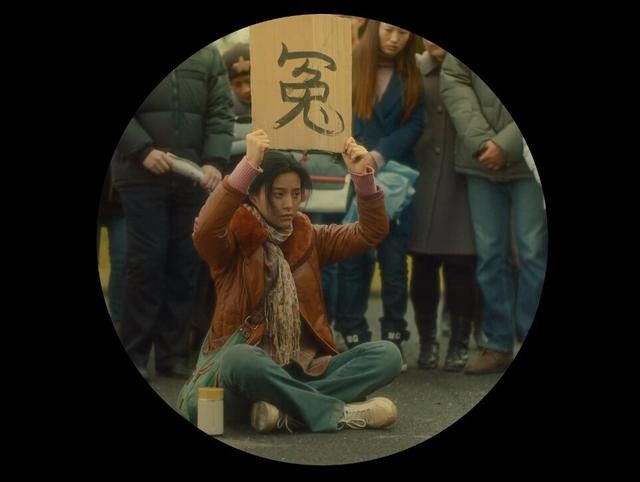I Am Not Madame Bovary (Feng Xiaogang, 2016)

A comedy of bureaucracy like many a film of the Romanian New Wave, but rather than the drab and bleak institutional ironies of the Eastern Bloc, Feng Xiaogang’s satire is bright and sprightly, bouncing along its tunnel visions for two and a half hours of contradiction made irresolvable by a society’s fundamental lack of belief in the primacy of actuality over appearance. Fan Bingbing plays a rural peasant woman who wants to undo and then redo her divorce. She and her husband, she claims, only pretended to get divorced in order to qualify for an apartment near the factory where he works, while keeping her house in another town (a year later they would remarry and get both properties). But then her husband took up in that apartment with another woman and, claiming the divorce was real, kicked Fan out.
Fan petitions first a local judge, then the next judge up, then the mayor, the county executive, and so on, all the way up to the provincial party chairman. Along the way, she is brushed aside and ignored by every official, none of whom can actually solve her problem anyway. She needs official acknowledgment of what is real and what is false, but that simply cannot be given. The mores of society don’t have any place for considerations of truth, only of gain: they’re flummoxed by her because they cannot figure out what she really wants. Theirs is a communication of allegory: everything always means something else; everyone always has an ulterior motive. Actual formalities (legal, political, moral) only exist as a cover for the real business of life: material accumulation.
Feng films with a strikingly odd device, a circular frame, like a static silent movie iris, taking up somewhat less than a traditional 1.33 space. The effect is an apparent continuation of painted illustrations of a Song Dynasty story that serves as the film’s prologue, the story of Pan Jinlian, a woman who was tossed aside and accused of adultery by her husband. Feng maintains the circle throughout the film, but for a brief sojourn in Beijing that gets expanded to a square image, and a single shot of a bus driving at night along the full rectangular length of a cinemascope frame (the epilogue as well takes up the full ‘scope frame, the clarity of hindsight revealing new dimensions to the old struggle). The framing serves an allegorical purpose, I suppose, reflecting the monocular myopia of a society that’s lost all perspective, or maybe a close-up look at a woman caught against the tide of progress. But more importantly, it just looks neat. The title reference to Madame Bovary is also somewhat odd, Fan of course asserts that she is not Pan Jinlian, not Bovary. Given what we know of her character it seems extremely unlikely that she’d be at all aware of the works of Flaubert. But such are the oddities of cross-cultural marketing in the age of globalization.
